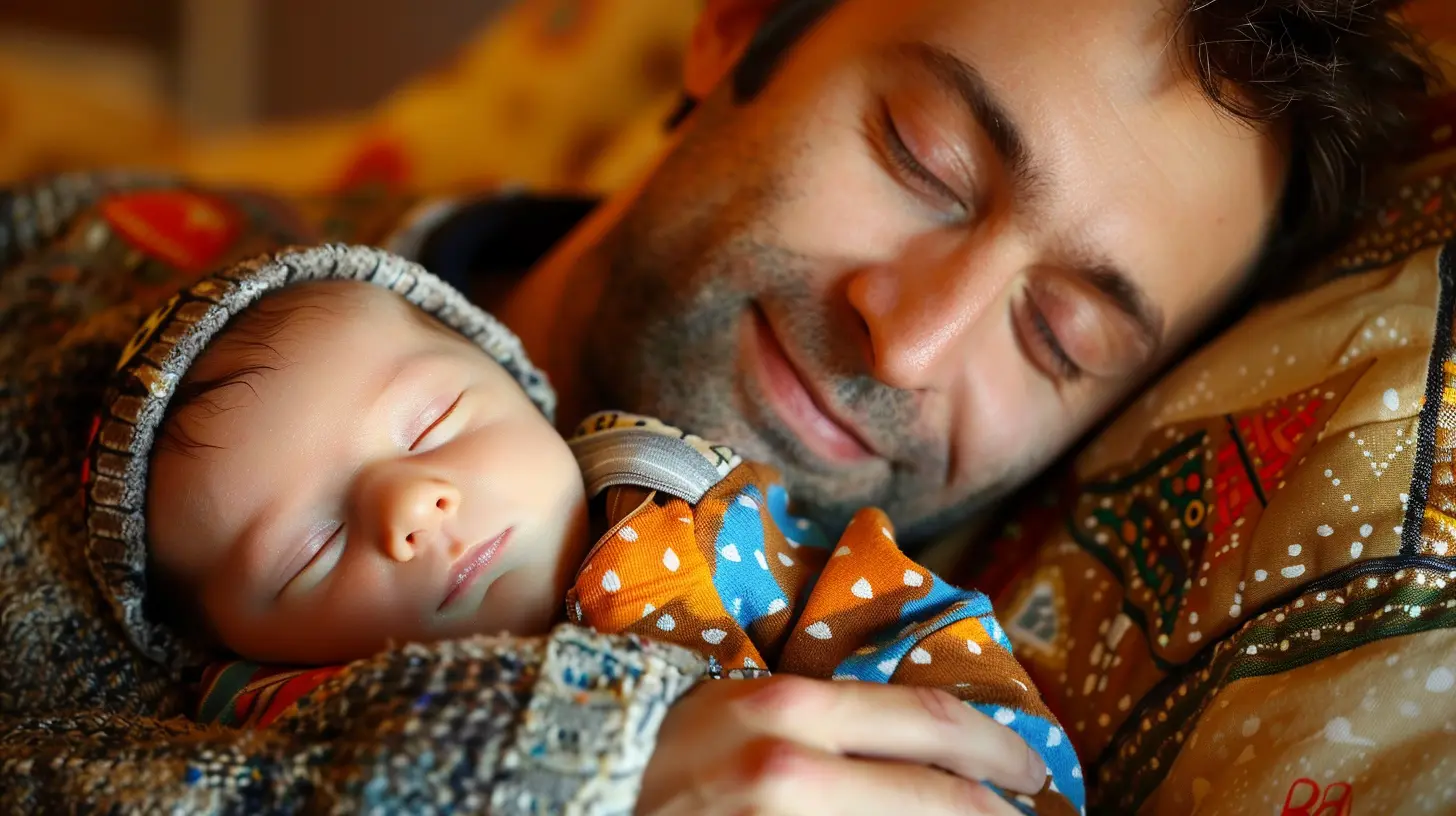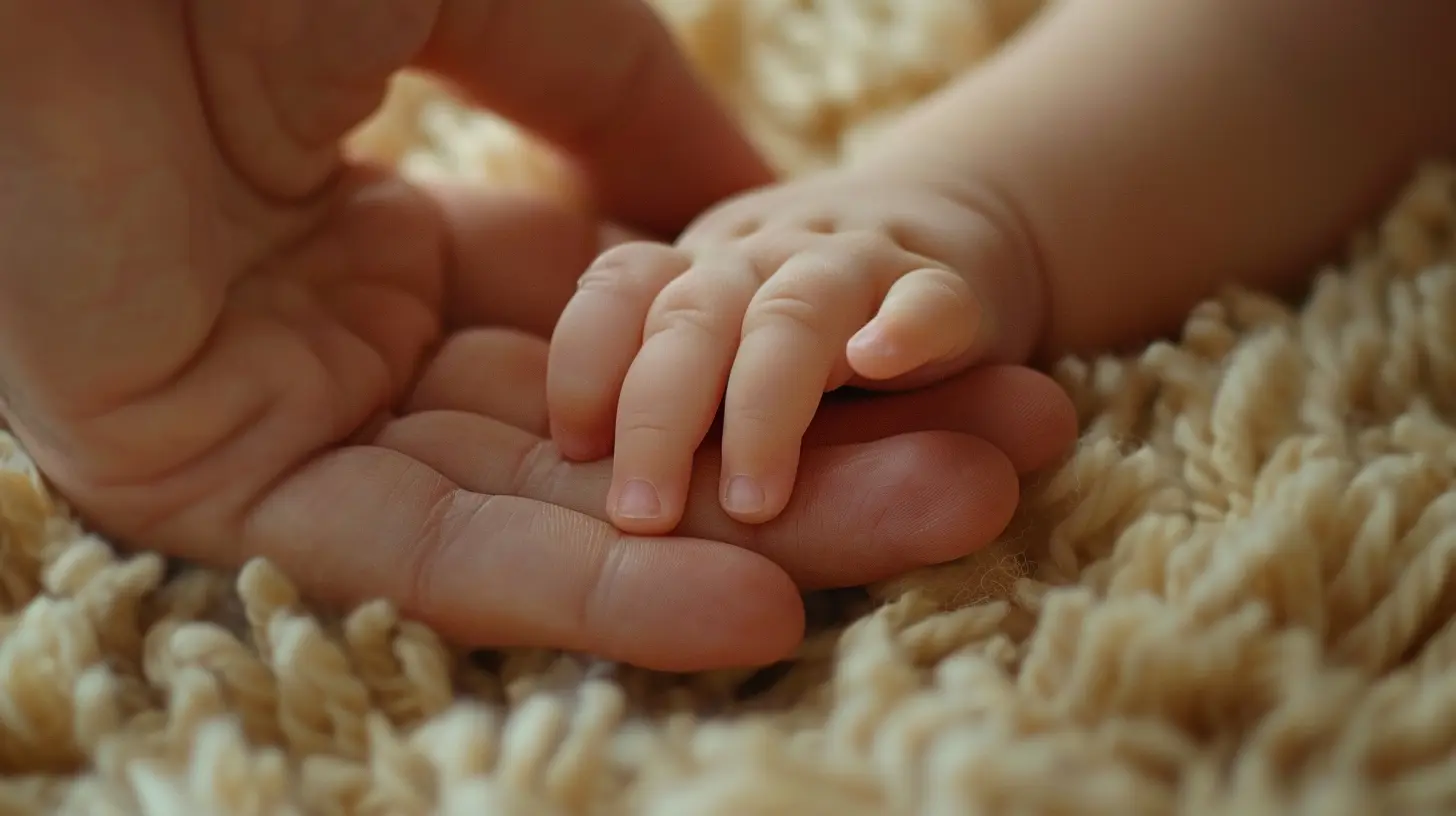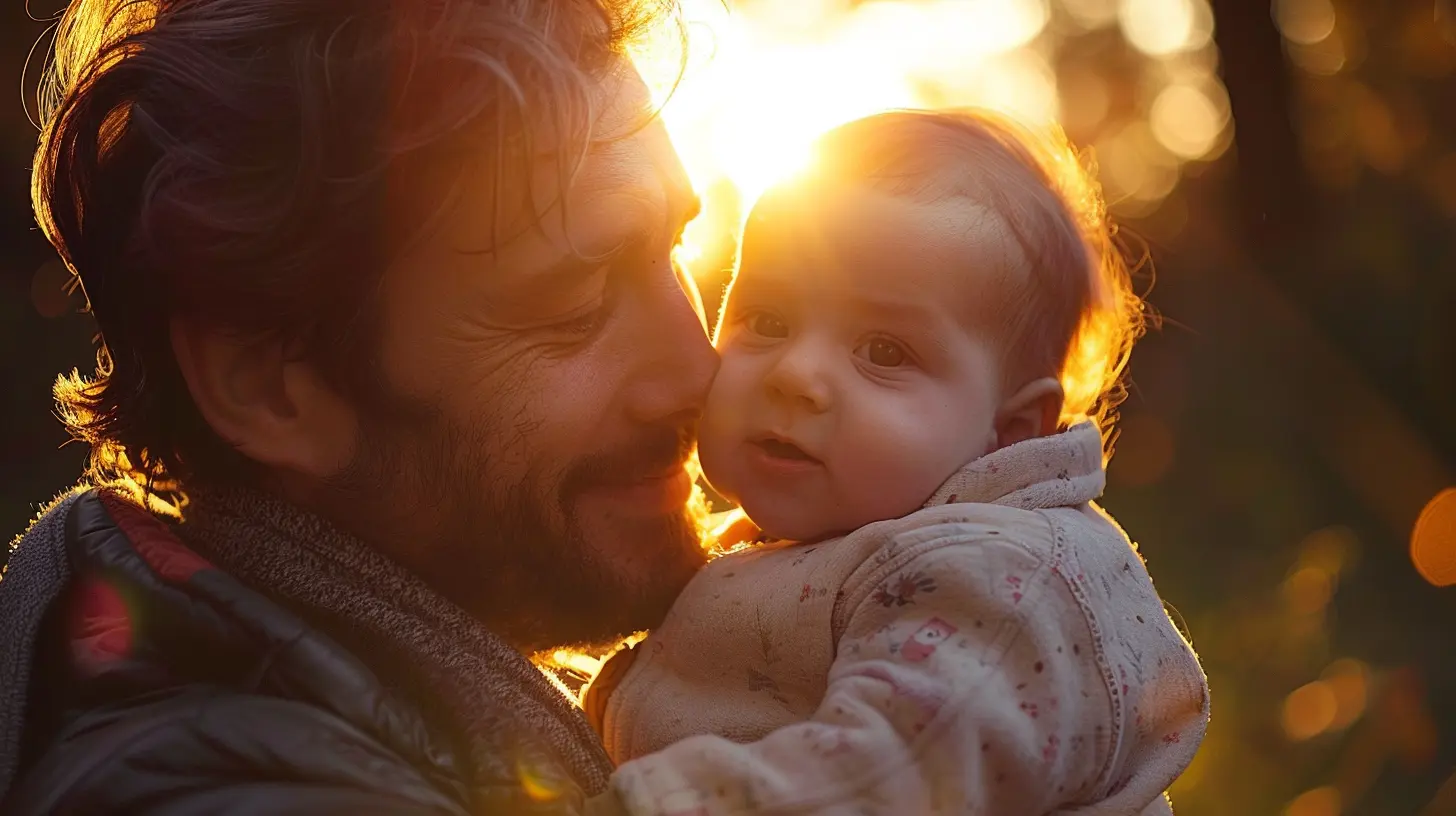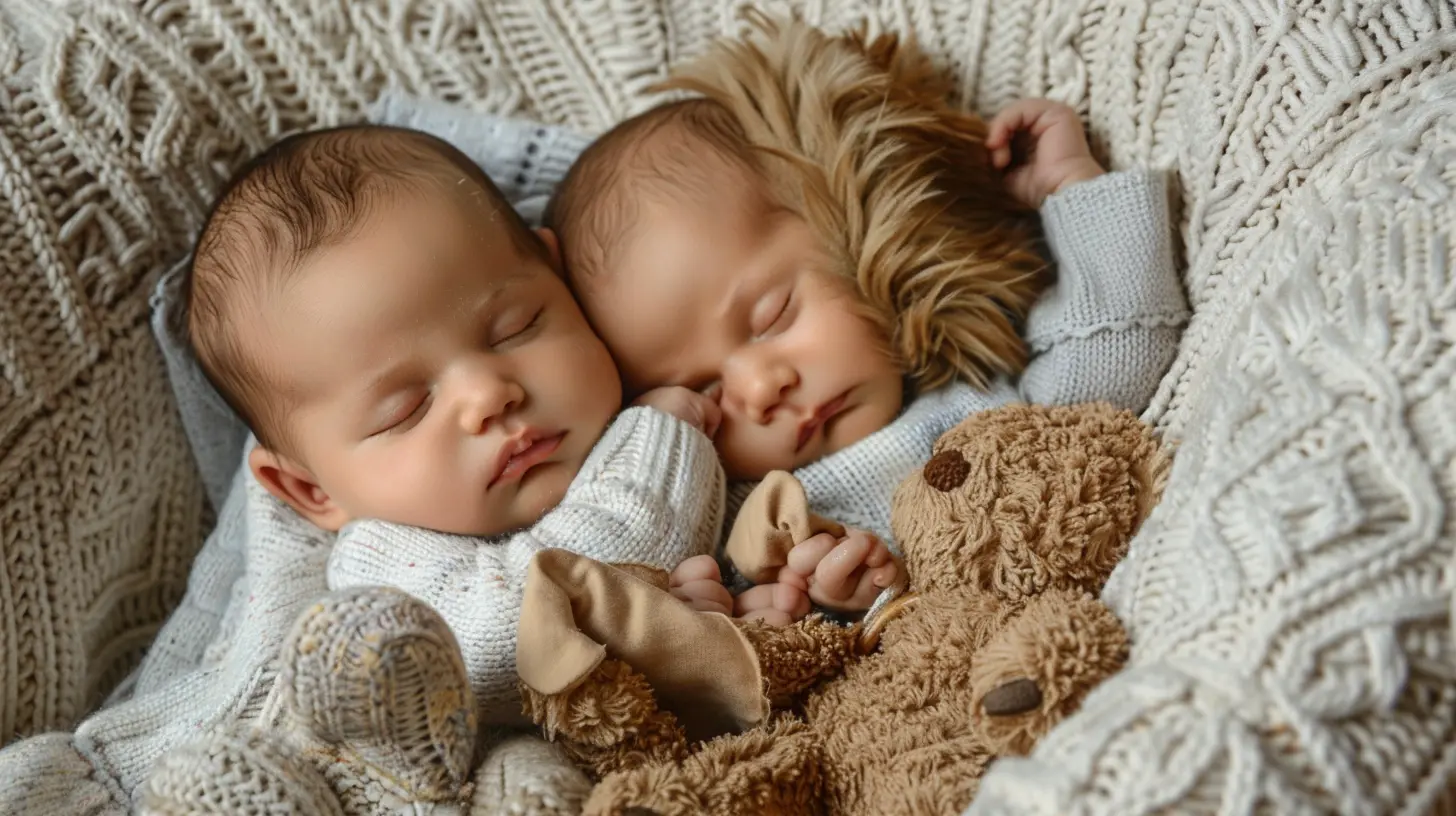The Importance of Bonding: Building Attachment with Your Infant
24 May 2025
Becoming a parent is filled with a whirlwind of emotions: excitement, joy, and yes, a little bit (or a lot) of nervousness. One thing that tends to sneak up on new parents is the need to build that deep, meaningful bond with their newborn. It’s not just about feeding, changing diapers, and trying to catch some sleep. Bonding is arguably one of the most important aspects of early parenting. But what exactly is bonding? And why is building attachment with your infant so vital?
In this article, we’ll dive into why bonding is essential, how you can foster a strong attachment with your baby, and the long-term impact that those early connections can have on your child's growth and wellbeing. So, grab a cup of coffee (because we all know you probably need it) and let’s explore the magic of bonding!

What is Bonding?
At its core, bonding is the emotional connection between a baby and their parents (or primary caregiver). This might sound a bit abstract, but think of bonding as the invisible thread that ties you and your baby together. It's what helps your baby feel safe, secure, and loved. Bonding happens through small, everyday interactions like feeding, cuddling, talking, and even soothing them when they’re upset.For a newborn, bonding is their first experience of love and security in the world. And for parents, it's that unbeatable feeling of knowing you are everything to that tiny human.
Developing this attachment isn’t instantaneous for everyone. Some parents feel an immediate connection the moment they lay eyes on their baby, while for others, it takes time. Both experiences are perfectly normal, and the important thing is to remain patient. Bonding is a process, not a race.
The Science Behind Bonding
Ever wondered why bonding is so important from a biological standpoint? When you engage in nurturing activities like holding or breastfeeding your infant, your body releases oxytocin, appropriately nicknamed the "love hormone." This hormone helps foster feelings of attachment, reduces stress, and promotes a sense of calm — not just for you but for the baby as well.From a baby’s perspective, that skin-to-skin contact, eye contact, and the sound of your voice help their brains grow and develop at an astounding rate. Studies have shown that infants who experience strong attachment tend to develop better emotional regulation skills, have stronger social connections, and even experience fewer behavioral issues as they get older.
In short, the power of bonding doesn't just warm your heart; it shapes your baby’s brain, setting them up for lifelong emotional health.
Why Is Attachment So Important?
Think of attachment as the foundation of your child’s emotional house. If the foundation is solid, that house is going to stand tall through all kinds of life’s storms. If the attachment isn’t there, it’s like trying to build on shaky ground.Emotional Development
Attachment helps create a sense of security in your baby. When they know that their needs will be met — whether it’s hunger, discomfort, or needing comfort — they develop trust. This is crucial for a baby’s emotional development. A securely attached baby tends to grow up more confident and resilient. They are more likely to explore their world, knowing they have a safe base to return to whenever they need it.Cognitive Development
A securely bonded baby isn’t just emotionally strong; they’re cognitively strong too. A baby who feels safe will have more mental bandwidth to explore and engage with the world around them. Simple things like peek-a-boo, responding to their babbles, and showing interest in their toys help build their brainpower. They’ll soak up information like a sponge, processing and learning from every interaction.Social Skills
You might not think your newborn is ready for a cocktail party, but believe it or not, those early bonds actually lay the groundwork for their future social skills. Babies who experience consistent attachment often grow up with stronger social skills. They’re usually better at forming relationships, reading social cues, and navigating conflicts with peers.
How Can You Build Attachment with Your Baby?
Now that we understand why bonding is so important, let’s talk about how you can actually build that attachment with your baby. Spoiler alert: It doesn’t require any fancy gadgets or high-tech baby equipment. The magic is in the simple, everyday moments.1. Skin-to-Skin Contact
Just as kangaroos carry their babies in pouches, our babies also crave being close to us. Skin-to-skin contact (often called kangaroo care) is one of the most powerful ways to bond with your baby. Holding your baby against your bare skin, especially in the early days, is comforting to them. It helps regulate their temperature, breathing, and even heart rate.Plus, it’s a great excuse to snuggle up and take a moment out of the chaos of early parenthood. Whether you're breastfeeding, bottle-feeding, or just hanging out, this physical closeness fosters that deep, emotional connection.
2. Respond to Their Needs
Babies don’t have words (yet!) to tell you what they need, but they sure have other ways of letting you know. Crying is their primary communication tool, and responding to their cries is a key part of bonding. This doesn’t mean you need to jump at every whimper, but acknowledging their needs helps them understand that they’re safe and cared for.Over time, you’ll start to decode what different cries mean — hunger, discomfort, tiredness — and responding to these needs builds trust. It also teaches your baby that the world is a safe place, setting a strong foundation for their future emotional resilience.
3. Eye Contact and Smiling
They say the eyes are the windows to the soul, and that rings true when bonding with your baby. Locking eyes with your little one and giving them a big smile sends a powerful message. It tells them, "I see you; I love you."During feedings or playtime, take the time to maintain eye contact and smile. Your baby will start to mirror this behavior, eventually smiling back. This back-and-forth interaction plays a big role in their emotional and social development. Plus, who can resist that gummy grin?
4. Talking and Singing to Them
Your voice is one of the first things your baby recognizes. Even though they don’t understand what you’re saying, the tone of your voice is soothing and can help them feel connected to you.Narrate your day, describe what you're doing, or simply say their name with affection. And don’t underestimate the power of singing! Whether you’re belting out nursery rhymes or humming a calm melody, the rhythm and tone can help soothe your baby.
5. Babywearing
Carrying your baby in a sling or wrap is not only convenient for getting around hands-free but can also provide that all-important physical closeness. By keeping your baby close to your body, they can hear your heartbeat, feel your warmth, and observe the world from a safe, secure vantage point.It’s also a great bonding method for partners, grandparents, or other caregivers to spend quality time with the baby while helping them feel secure.
6. Gentle Touch and Massage
Infant massage is another wonderful way to bond. Babies love the gentle pressure of your hands, and it can help them relax, sleep better, and even alleviate gas. Plus, massage can enhance their body awareness and motor development.Use a gentle oil or lotion, and softly massage their little arms, legs, tummy, and back. Focus on being present in the moment—both you and your baby will benefit!
What If Bonding Doesn't Happen Instantly?
Let’s get real for a second. Not all parents feel like they’re floating on cloud nine the moment they meet their baby. For some, bonding can take a little time, and that’s okay! Parenthood is a huge adjustment, and fatigue, stress, or even post-partum depression can sometimes make bonding feel harder.Don’t beat yourself up if you don’t feel an immediate connection — bonding is a process that can develop over weeks, months, or even longer. The key is consistency. By providing love, attention, and responsiveness to your baby’s needs, that emotional bond will grow stronger with time.
If you're struggling with bonding or feeling emotionally disconnected, it’s important to talk to your healthcare provider. They can offer resources and support to help you along the way.
The Long-Term Benefits of Early Attachment
So, you might be thinking: Sure, bonding is important now, but does it really make a difference in the long run? The answer is a resounding YES.Stronger Relationships
Children who experience secure early attachments tend to form healthier, stronger relationships throughout their lives. They’re more empathetic and understanding and often have better communication skills.Improved Emotional Regulation
Babies who grow up in a secure environment, where their needs are consistently met, tend to have better emotional regulation. They’re able to manage stress, frustration, and challenges more effectively as they grow older.Better Brain Development
When a baby feels safe and secure, they spend less energy on stress and more on learning and exploring. This enhances their cognitive development and impacts everything from language skills to problem-solving abilities.Higher Self-Esteem
Children raised with strong attachments often have higher self-esteem. They believe in their own worth, are more independent, and take on new challenges with confidence because they know they have a solid emotional base to fall back on.Conclusion
Bonding with your baby is more than just sweet, quiet moments (though those are pretty great). It’s an essential part of their emotional, social, and cognitive development. From skin-to-skin contact to simply smiling and talking with your baby, building attachment is made up of small yet powerful interactions.Remember, every baby and parent relationship is unique — so be patient with yourself and your child. Over time, that bond will deepen, setting the foundation for a lifetime of love, trust, and connection.
all images in this post were generated using AI tools
Category:
Infant DevelopmentAuthor:

Austin Wilcox
Discussion
rate this article
3 comments
Quill Ortiz
Like peanut butter and jelly, bonding with your baby makes the tastiest memories!
June 8, 2025 at 5:02 PM

Austin Wilcox
Absolutely! Just like that classic combo, bonding with your baby creates sweet, lasting memories that nourish their development.
Jennifer Middleton
This article highlights a crucial aspect of parenting—attachment. However, it’s essential to recognize that bonding varies among families and cultures. Encouraging flexibility in bonding practices can foster a deeper understanding of diverse emotional connections, benefiting both parents and infants alike.
May 30, 2025 at 2:46 PM

Austin Wilcox
Thank you for your insightful comment! I completely agree that bonding practices can vary widely among families and cultures, and embracing this diversity can enhance our understanding of attachment.
Brandon McClure
Creating a strong bond with your infant is a beautiful journey! Every smile, cuddle, and gentle word shapes their world and strengthens your connection. Embrace these moments—they're the foundation for a lifetime of love, trust, and joy together!
May 25, 2025 at 3:14 AM

Austin Wilcox
Thank you! I completely agree—these moments are truly invaluable in building a strong, loving attachment.



